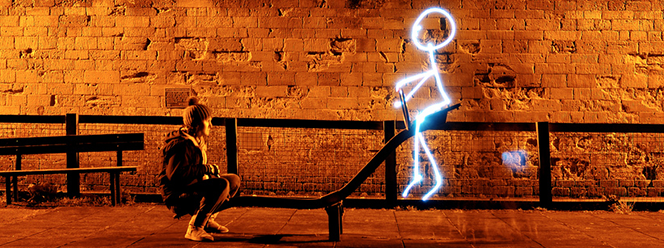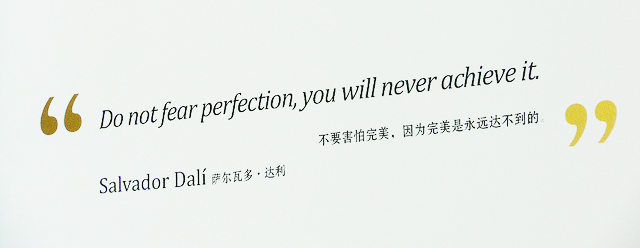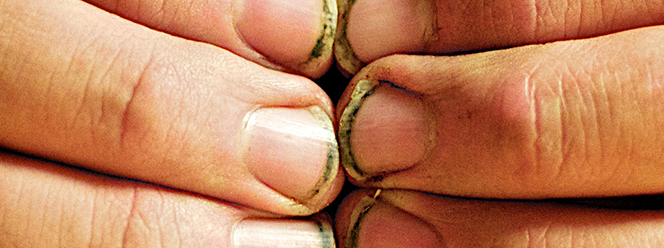
by Tara Joyce | Jun 10, 2016 | Cultural Creativity, Personal Branding

It’s an endless quest to be good enough in another person’s eyes. Not facing our own thoughts and feelings, we measure our self using the eyes of another. Unable to acknowledge it’s really our own perception of self that we use as the measure—not theirs.
It takes practice to feel good and whole as we are. Sometimes, rather than doing this, we buy clothes and things, chase and stockpile money, and do what we can to be “better” than others. In comparison, we find our worth.
Rather than question and/or remove ourselves from the mindsets and situations that exert and encourage this dance of superiority/inferiority, we can find ourselves feeding into it and trying to puff ourselves up in order to match it—and even beat it. In our armour of clothes, hair, beautiful things, and pomp we are elevated and protected.
A culture of buying into the need to feel superior (and invariably, inferior) to others. A collective experience encouraging us and teaching us all to feel so very insecure.
Repeatedly pushed and pulled to feel inferior and superior, internally and externally, this wild see-saw of emotion is crazy-making. In our totality, we are no better nor worse, yet we each have qualities that make us “better” than another. It’s focusing on these qualities that gets us caught on the see-saw. Feeling superior ultimately leads to feeling inferior. And vice versa. The pendulum keeps swinging, the see-saw rises and falls.
How do we know what is impressive to another? Thinking what impresses us is what impresses everyone leaves us in fantasy, believing everyone is like us. And they are not. Acknowledging our fantastical expectations, we are pulled by them less by them—and we’re less likely to push them on others, keeping ourselves on the see-saw.
We are neither as perfect nor as terrible as we imagine ourselves (and others) to be. Accepting this frees us from the push and pull to be “the best.” Equanimity actively dissolve the illusion surrounding us.
For our own happiness, we need to own the places where we compete and compare, where we feel inferior and superior to others. It’s so very okay that we ride the see-saw. It’s so very okay we measure our self against others. Owning this, we make the see-saw an easier ride for all of us. Now, the pendulum has less space to swing, and the ride becomes less wild. For the moment, in our truth, we are each good enough.
photo credit: Mike Leary

by Tara Joyce | Jun 9, 2015 | Cultural Creativity, Innerpreneurship

Many of us dream of reaching perfection, not realizing the cost of it. Many of us dream of the day we can banish our imperfections from our lives.
Perhaps, you too feel you’d be happier without your imperfections. I’m certainly not here to disagree. There’s nothing wrong with wanting to improve your Self.
But there is a difference between transforming your imperfections, and removing them.
Transforming them allows you the ability to choose to see your imperfections in a different light. In recognizing them clearly, you can begin to feel different about them, and to empower your Self to use them differently.
Removing or denying your imperfections, however, un-grounds you from the truth of your Self, and the reality you’re trying to ignore. By removing and denying your imperfections, you’re removing and denying your ability to feel different about them, and to change them.
In one, your reaching for imperfect perfection; in the other, you’re reaching for impossible perfection. One nurtures, while the other destroys, your sense of Self.
You can feel different. You can grow in your perfection. You have the power to change what you do not like about your Self. But to do so, the changes — and changing — must first come from within you.
You must face and embrace your imperfections. You must be willing to see them. In doing so, you can learn how to be with them and how to use them differently. In embracing your imperfections, you begin the process of transforming them into something of beauty. Something imperfectly perfect. As defined by You.
Reaching for your perfection is not easy. Transforming your imperfections is hard. But it’s the cost of realizing your dreams, and it’s always a goal worth working on.
photo credit: Michael Coghlan

by Tara Joyce | Aug 20, 2014 | Cultural Creativity, My Journey | What's On My Mind, Self/Business Growth

When I feel I need to perform, my mind jumps to conclusions over and over about how YOU are interpreting and enjoying what I am doing or have done. Over and over I come up with negative judgements about what I have produced, and what YOU have decided.
I can’t be perfect. IT can’t be perfect. And yet I WANT (it) to be, and, in part, I feel I NEED (it) to be.
Maybe then SHE would be satisfied. I AM my own worst judge.
Perhaps, my conclusions will always happen. Perhaps, my mind, my inner critic, will always have something to say. But I DO have a choice in what I do with these conclusions SHE so easily jumps to.
In part, my judge and her conclusions support me in being focused on doing my best work. BUT when I actively court her conclusions, by giving ample space to them, they always stop me dead in my tracks.
SHE is a part of me, and perhaps I didn’t have a lot if choice in that, but I DO have choice in how much space is given for her to do the damage SHE requires. There is no reason my judge can’t simply be acknowledged, and then allowed to pass.
I see you. I hear you. Nothing more.
I don’t need to hide from her OR let her in. We can live in harmony. I can let her be who SHE is, without needing to attach to her words or thoughts. I can hear her and leave it at that.
You’re my paralyzing thinking, my harshest judge, and I am learning conclusion by conclusion how to live more peacefully with you.
photo credit: Hartwig HKD

by Tara Joyce | Jul 30, 2012 | Self/Business Growth

What if my imperfections were my road map for growth and becoming more perfectly, joyfully me?
What if embracing and supporting my imperfections could lead me to spaces I’ve never been before?
I am not perfect. And I desire to feel totally happy letting the external world know this truth. No matter the situation.
Inside, I am aware that I am imperfect, but I hold a hesitancy to accept this truth. I waste my valuable energy trying to resist this truth internally, and trying to portray otherwise to the external world.
I’ve been choosing to support the collective lie that perfection is a true ideal and I have allowed this choice to weigh on me. I diminish myself with this ‘perfect’ story, and diminish my world by continuing with a story I don’t truly believe in.
It’s no wonder I feel tortured and confused in my relationship with imperfection, dancing between ignoring her existence and engulfing myself in her.
But what if I chose to walk the line with my imperfection instead, and celebrated the perfection of my imperfections?
What if I gently embraced my imperfections, and had faith in my own ability to transform them into something beautiful?
What if I believed that in working with my less than perfect qualities I am better able to discover the perfection in me?
photo credit: bark








